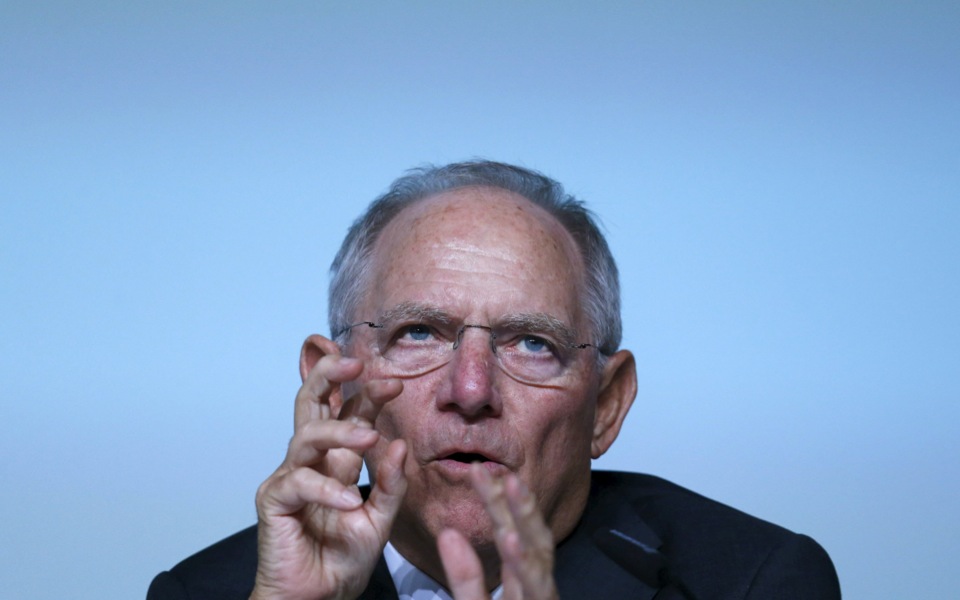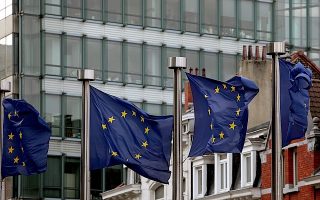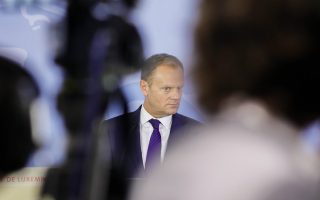Schaeuble offers Lew a straight up swap: Greece for Puerto Rico

Wolfgang Schaeuble, Germany’s acerbic finance minister, proposed a debt deal to his U.S. counterpart: Greece for Puerto Rico, straight up.
“I offered my friend Jack Lew these days that we could take Puerto Rico into the euro zone if the U.S. were willing to take Greece into the dollar union,” Schaeuble said at an event in Frankfurt Thursday. Lew, the U.S. Treasury secretary, “thought that was a joke,” Schaeuble said.
The moment of levity comes from a man at the center of talks that will decide in coming days whether Greece leaves the euro area. In the U.S., Lew is trying to prevent Puerto Rico’s unrelated fiscal crisis from deepening without a federal bailout.
Schaeuble’s suggestion, though surely in jest, would likely leave Lew with the raw end of the deal.
Puerto Rico has $72 billion of debt, compared with about 320 billion euros ($353 billion) in Greece. Furthermore, Puerto Rico’s obligations are mostly in the hands of private investors, such as hedge funds Brigade Capital Management and Fir Tree Partners. Greek debt is held by other countries, including Germany, and the European Central Bank, injecting politics into the equation.
While both economies have been shrinking, Puerto Rico’s debt burden is smaller. The commonwealth’s debt, including municipalities and public authorities, represents 69 percent of its gross domestic product, compared with 172 percent of GDP in Greece, according to Standard & Poor’s. Current GDP per capita is $28,900 in Puerto Rico versus $21,300 in Greece.
Stuck with dollar
There are similarities. Neither country has its own monetary policy or currency, so they can’t use devaluation to boost their economies. Greece can at least consider returning to the drachma. Puerto Rico is stuck with the dollar.
Even if Lew were to take Schaeuble’s offer, it’s not clear whether Puerto Rico would be interested in a switch. Its residents enjoy federal subsidies they get from the mainland, worth about $6 billion a year. The island’s non-voting representative in Congress, Pedro Pierluisi, earlier this year introduced legislation that would make the ties even stronger, opening a path for turning the island into a U.S. state.
[Bloomberg]





